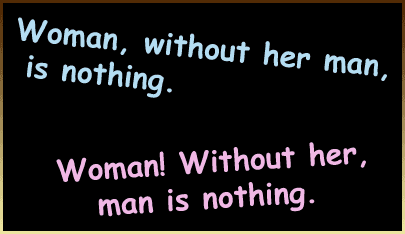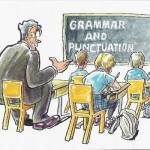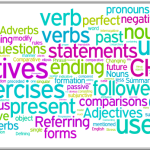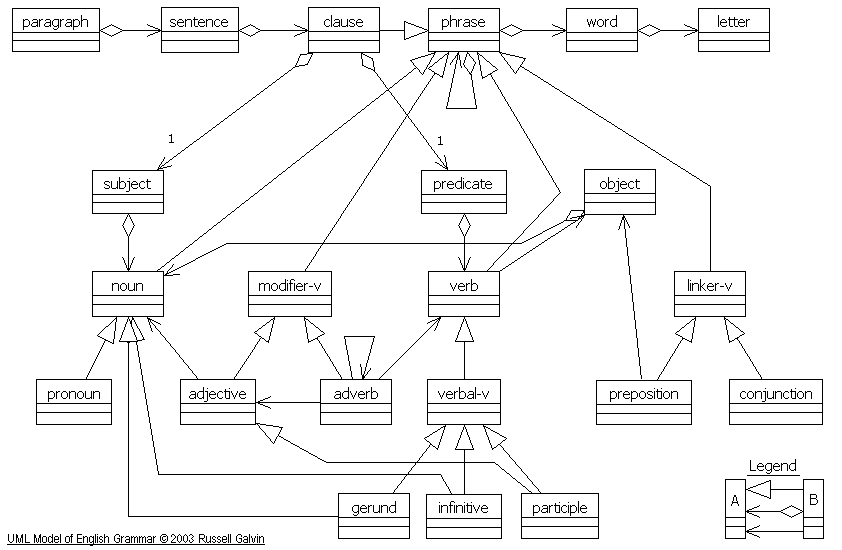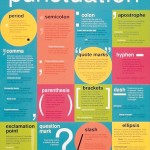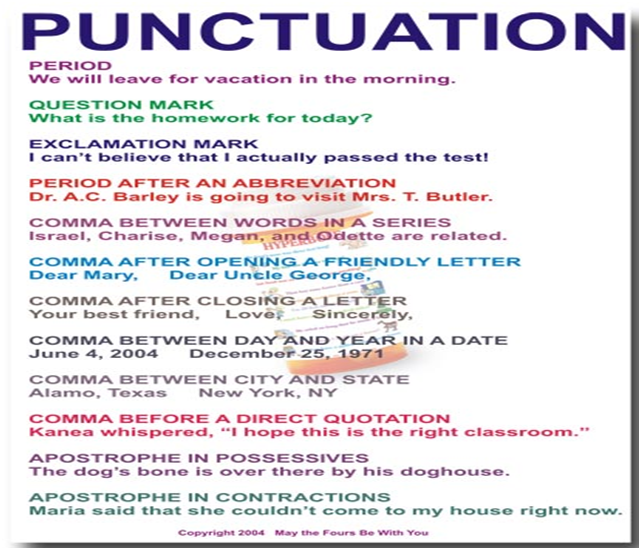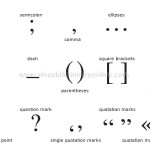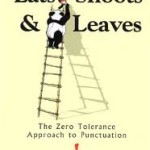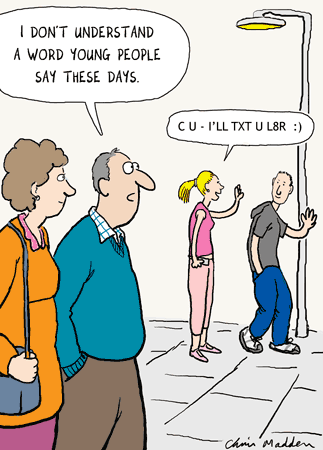So here’s the thing about our written language: it is under constant threat and being tortured everywhere we look. We wouldn’t treat our animals with such cruelty, but we seem happy to mangle our beautiful language without compunction. This situation can’t continue, so say many, so we have three choices:
- Take the hard line Lynne Truss zero tolerance school towards poor punctuation and grammar wherever it is to be found, simply to maintain the integrity of our language
- Relax and be tolerant; take an easy approach to some of the rules, as described in this article, allowing us to boldly go with the occasional split infinitive, for example.
- Allow the rules of grammar to be transformed over time and the language to morph into something different (as with the somewhat different rules applied to American English, for example, which result in very different interpretations of the same words or sentences. Or indeed Orwell’s Newspeak?)
There are arguments in favour of all approaches, not least because, when taken to extremes, militant grammar pedantry can become utterly absurd, as with Churchill’s famous discourse on prepositions. There seem to be many versions of his actual speech, but this one seems to fit the bill:
“This is the kind of arrant pedantry up with which I will not put.”
Maybe I was brought up in the old school, or rather a boys’ Grammar School which adhered to tradition, but I almost wince with pain upon seeing split infinitives, abuse of the apostrophe and torture by comma. Worse still misuse of words: how does it make you feel when people write “I must of been there,” for example? Or for that matter selecting the wrong there/their/they’re – or any one of a thousand examples. Fact of the matter is that this language, notable for its lack of accents, is very difficult to learn. Our vowels, so a Spaniard once told me, are all over the place. For a few more examples of common mistakes, try here, here and here – and there are very many more sites listing ways in which we screw things up.
That is not to say I don’t make grammatical blunders myself, especially when tired or not concentrating. Indeed, given the sheer volume of words that find their way on to my website it would be nigh on impossible to escape without some errors, but in mitigation I am not hypocritical about this – errors are always corrected in due course; this, after all, is why we employ proof readers.
The point of this is surely that without correct use of linguistic devices, structures, punctuation marks and rules, comprehension is much the poorer. The story behind Truss’s book indicates precisely how poor punctuation changes meaning:
The title of the book is an amphibology—a verbal fallacy arising from an ambiguous grammatical construction—and derived from a joke about bad punctuation: A panda walks into a café. He orders a sandwich, eats it, then draws a gun and proceeds to fire it at the other patrons. “Why?” asks the confused, surviving waiter amidst the carnage, as the panda makes towards the exit. The panda produces a badly punctuated wildlife manual and tosses it over his shoulder. “Well, I’m a panda,” he says. “Look it up.” The waiter turns to the relevant entry in the manual and, sure enough, finds an explanation. “Panda. Large black-and-white bear-like mammal, native to China. Eats, shoots and leaves.“
Some would suggest this is the fault of schools for not drilling into our children the rules of language in order to accommodate faster learning by phonetics, though this is simplistic. I have no doubt my kids were taught, and generally apply the rules of grammar pretty well, but the pressure on kids to learn far more, far more quickly means focusing on minute detail can go by the board. What they need is a priority and a chance to focus on using the rules correctly, and indeed to understand why using language correctly makes all the difference to articulating themselves effectively. However, it is the use of language by everyone in UK society, whether or not they know or remember the rules of using semi-colons, that result in usage changing for better or worse.
If the core meaning is unaffected though, does it matter what word order we adopt? After all, other languages seem happy for words to appear in more than one order. Not that I know Thai, but I’m told that words can appear in pretty much any order but convey the same meaning! Is it only convention and tradition that means we stick to the default style?
Languages can and do evolve, just as words and phrases arise from the vernacular, change meaning or become anachronistic and vanish entirely. If anything, the language changing is a sign of free expression, the obverse of Nineteen Eighty-Four and the use of language as a means of control. English has learned to embrace the cultural origins of many of its citizens, which I take to be an excellent idea, growing our knowledge and understanding. We’ve gained all manner of new expressions and forms as a result of cyber-talk and text language, and these are just two examples of the forces for change.
So why not allow grammatical forms and sentence structures to evolve too, since that does happen de facto over a very long period? Granted it will displease those societies dedicated to preserving our language in its existing form, but over a period of time usage will change and The Queen’s English Society, among others, will be forced to amend its rules of punctuation, even if Ms Truss is like Canute, forcing back the waves.
Ah, but there is still the preserve of archaic rule: house style within newspapers, press agencies, law and medicine are just four examples where specific guidelines for the use of language are applied, some more exacting that the default grammatical structures and use of punctuation applied by the English language. No doubt each will be its own weird and wonderful foreign language in due course.
One final thought to leave you with: if this is just the trouble with the written language, just wait til we get started on the spoken language… the hotbed of linguistic alchemy!

